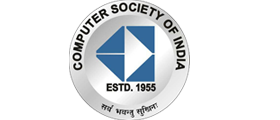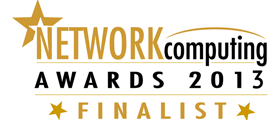MATLAB, short for “Matrix Laboratory,” serves as a powerful platform for engineers and scientists to innovate and create transformative systems. With its versatility, MATLAB finds applications in a wide range of research projects, including numerical computation, data analysis, algorithm development, and simulation. Our dedicated research team has successfully handled all domains under MATLAB for over 18 years, providing unwavering support to scholars. We continuously update our knowledge and expertise in leading technologies, ensuring project success. Our developers excel in simulation and implementation, backed by abundant resources to support projects of any scale. Explore some samples of MATLAB PhD projects across various domains.
1.Signal Processing:
- For improving speech recognition in noisy environments, we implement the latest signal processing methods.
- In medical diagnostics, the algorithms are enhanced for the evaluations and description of EEG or ECG signals.
- Image and Video Processing:
- Deep learning is utilized by us to automatically identify the diseases from medical images like MRI or CT scans.
- The computer vision algorithms are developed for assisting in identifying the up to date object and monitoring the surveillance devices.
- Control Systems:
- The flexible control systems are created and simulated for industrial automation with the help of MATLAB and Simulink.
- We establish control tactics which are effective for unmanned aerial vehicles (UAVs) in evolving environments.
- Machine Learning and Artificial Intelligence:
- In finance or healthcare, we execute and contrast different machine learning algorithms for predictive analysis.
- To perform natural language processing tasks like sentiment analysis or machine translation, we make use of deep learning methods.
- Communication Systems:
- For advanced data transmission and reception, 5G wireless communication networks are simulated and improved by us.
- Signal processing algorithms are generated for protecting and crucial underwater acoustic communication.
- Biomedical Engineering:
- Through MATLAB, we can review genomic data for detecting the DNA traces in complicated diseases.
- We simulate and explore the biomechanical systems like prosthetic limb design or gait analysis.
- Renewable Energy Systems:
- Considering the performance of optimization, we represent and simulate the photovoltaic systems.
- Wind turbine blades are examined and enhanced by the MATLAB and its designs are employed for extreme energy capability.
- Quantitative Finance and Econometrics:
- On the basis of MATLAB’s Econometrics Toolbox, the models are evolved for risk management and financial forecasting.
- According to MATLAB, the algorithmic trading tactics are executed and implemented.
- Robotics:
- Robotic manipulators are developed and simulated by us for performing the precision tasks in building the robots or operations.
- Autonomous navigation and decision making processes in robotic systems are accomplished by executing machine learning algorithms.
- Aerospace Engineering:
- In order to investigate the space missions, we simulate the spacecraft routes and provide the objective blueprint.
- MATLAB is applied for evaluating and advancing the aerodynamic functions of aircraft.
- Environmental Engineering:
- By employing MATLAB, we can forecast the consequences of climate change on natural resources.
- For the purpose of real-time tracking and conducting the water quality by applying sensor data analysis, the methods are developed in this field.
Beyond several domains, these project concepts emphasize the flexibility of MATLAB in overcoming the complicated research obstacles. It is very essential to obtain a better knowledge about the unique MATLAB tools and performance which is applied and in what way they provide to accomplish your research goals are considered more crucial for attaining a successful project. Moreover, merging the MATLAB with other software or hardware, which is appropriate, sufficiently improves the scope and effect of your research.
How do you write a PhD thesis?
Writing a PhD thesis, while incorporating the MATLAB requires a transparent structure, an exact report of your MATLAB code and a detailed illustration of how the MATLAB was beneficial in your research. We offer step-by-step procedure for organizing and writing your MATLAB-focused PhD thesis:
- Introduction :
- Context and Background: You must offer a summary of the extensive research area and the particular issue which is overcome by your thesis.
- Research Objectives and Questions: The key goals and the question where your research intends to answer should be clearly defined in this section.
- Significance of the Research: The significance of your research and its probable effect must be clarified.
- Thesis Structure: Describe your thesis structure.
- Literature Review :
- Review of the Field: According to your topic, review the current research and detect the gaps that your research aims to fill.
- Role of MATLAB in Related Work: If it is relevant, discuss in what way the MATLAB contributed to the corresponding research.
- Methodology :
- Overview of Your Approach: Throughout the project, the complete research methods must be explained and justify how the MATLAB suits into it.
- MATLAB Tools and Techniques Used: The unique MATLAB functions, toolboxes and techniques which you utilized in your thesis must be explained extensively.
- Data Collection and Preparation: Specifically if MATLAB was implied in these methods, you can illustrate the process of data collection and data preparation.
- Implementation (or Experimental Setup) :
- MATLAB Code and Development: The MATLAB code which you developed must contribute in a detailed account. If it is suitable, incorporate the bits of code in the thesis and offer the entire code in an appendix or a supplementary digital repository as it is considered efficient.
- Algorithm Design and Execution: The algorithms or models which you execute by utilizing MATLAB along with their implementation must interpret.
- Challenges and Solutions: While applying MATLAB in your thesis, you might face some difficulties. So, discuss these challenges and explain how you overcome them?
- Results and Discussion :
- Presentation of Results: From your MATLAB simulations, experiments, or analyses, acquire the findings and display it. If needed, make use of graphs, charts and tables. Eg (MATLAB excels in data visualization).
- Interpretation and Analysis: In the framework of your research questions, evaluate and explain these results.
- Comparison with Existing Work: Contrast your result with those in current literature, where it is applicable.
- Conclusion and Future Work :
- Summary of Findings: You must overview the main result of your research. Conclusions Drawn: Based on your research question, define your final conclusions.
- Limitations and Future Research: The restrictions of your work are discussed and for future research, suggest some probable areas.
- References :
- Citation of Sources: List all the educational references which you mentioned in your thesis.
- Appendices :
- MATLAB Code: Submit your MATLAB code here, if it is not involved in the main text.
- Additional Data: You might comprise any additional data, charts, or detailed methodological descriptions which are extensive for the main body.
Additional Tips
- Clarity and Cohesion: Make sure whether your writing is presented in a clear format and each part must flow sensibly into the next.
- MATLAB Specifics: Be unique about the functions and accomplished toolboxes, while discussing MATLAB. This not only presents the intensity of your work but also helps you in maintaining the consistency.
- Code Documentation: Your MATLAB code must clearly establish and be accurate with observations, the objective and capability of each segment should describe.
- Visualizations: To show your data and findings efficiently, then better to deploy the MATLAB’s effective visualization abilities.
- Validation of Results: Incorporate validation or testing of the results which is acquired through MATLAB simulations or analyses, if it is relevant.

PhD Projects using MATLAB Simulation
We have developed a range of sample topics for PhD Projects using MATLAB Simulation. Stay connected with us for further guidance on your research issues. Our PhD guidance will assist you in achieving top grades in your academics.
- VeriBlock: A Blockchain-Based Verifiable Trust Management Architecture with Provable Interactions
- Development of Supply Chain Spare Part Application in Maintenance, Repair, and Overhaul (MRO) Industry using Blockchain Technology
- Blockchain-based security algorithm on IoT framework for shielded communication in smart cities
- Referenced Blockchain Approach for Road Traffic Monitoring in a Smart City using Internet of Drones
- Blockchain-Based Privacy-Preserving Positioning Data Sharing for IoT-Enabled Maritime Transportation Systems
- Defending Data Poisoning Attack via Trusted Platform Module and Blockchain Oracle
- Deep Reinforcement Learning for Edge Computing Resource Allocation in Blockchain Network Slicing Broker Framework
- A privacy data security scheme based on homomorphic encryption and consortium blockchain for the Internet of Things
- Authentication & Encryption Based Security Services in Blockchain Technology
- A Novel Framework for Smart Systems Using Blockchain-Enabled Internet of Things
- PharmaChain 3.0: Blockchain Integrated Efficient QR Code Mechanism for Pharmaceutical Supply Chain
- A Graph Model Based Blockchain Implementation for Increasing Performance and Security in Decentralized Ledger Systems
- Application of Blockchain Technology to Smart City Service: A Case of Ridesharing
- A Privacy-Preserving-Based Secure Framework Using Blockchain-Enabled Deep-Learning in Cooperative Intelligent Transport System
- Combating Deepfakes: Multi-LSTM and Blockchain as Proof of Authenticity for Digital Media
- A Multiple-Blockchains based Service Monitoring Framework in Edge-Cloud Computing
- A Comprehensive and Secure Trustless Blockchain Framework for Autonomous Vehicles
- Throughput-Efficient Lagrange Coded Private Blockchain for Secured IoT Systems
- Smart Blockchain-based Control-data Protection Framework for Trustworthy Smart Grid Operations
- Blockchain-Based Resource Trading in Multi-UAV-Assisted Industrial IoT Networks: A Multi-Agent DRL Approach












